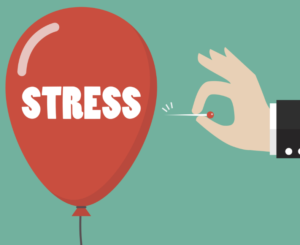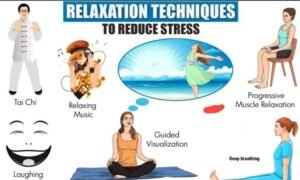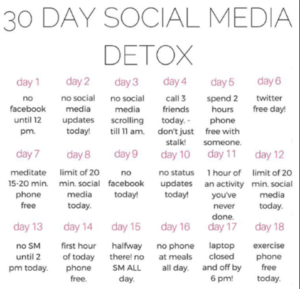We are living in a fast-paced world where we talk about small breaks and mental health. The issues are huge because people are not serious about mental health, they are abducted in an everyday vicious cycle.
STRESSED TO RELAXED

Stress can often feel like an inevitable part of life. However, there are numerous techniques available that can help us manage and reduce stress, promoting a healthier and more balanced lifestyle. Here are some of these techniques:
- Deep Breathing: By taking a moment to breathe in deeply and exhale slowly, we can wash away stress and bring about relaxation.
- Massage: A good massage can ease muscle tension and provide a much-needed break from our worries.
- Tai Chi: This gentle exercise, with its slow movements and focus on the breath, can help us feel grounded and relaxed.

- Yoga: Yoga, a wonderful blend of physical postures, breathing exercises, and meditation, offers a holistic approach to well-being that can bring a sense of peace and relaxation.
- Biofeedback: This fascinating technique allows us to gain control over involuntary bodily processes, like heart rate or blood pressure, promoting relaxation.
- Music and Art Therapy: Getting creative by listening to music or making art can be incredibly soothing and relaxing.
- Aromatherapy: The power of scent can’t be underestimated. Essential oils can create a calming atmosphere and help us relax.
- Progressive Muscle Relaxation (PMR): This technique involves tensing and then releasing different muscle groups, providing a physical way to let go of stress.
- Guided Imagery: By closing our eyes and imagining a peaceful scene, we can mentally escape to a place of relaxation.
Remember, the key is to find what works best for you and make it a regular part of your routine. Here’s to a happy relaxing and stress-free life!
Healthy Habits for Relaxation

Start by taking baby steps. You don’t need to change everything at once. Begin with small goals like taking a 15-minute walk each day or journaling for 10 minutes before bed. Sleep is key to managing stress and staying healthy, so aim for at least 7 hours of sleep each night. Eating right is also important. A balanced diet with plenty of fruits, veggies, and lean proteins can help keep your stress levels in check.
Physical Activity to make your body relax

Regular exercise, whether it’s walking, jogging, or yoga, can help reduce stress and boost your mood. Don’t forget to stay hydrated by drinking plenty of water and enjoying some green tea. This not only keeps you physically healthy but also helps in managing stress levels.
Digital Detox and Social Connections:
Try to limit your screen time and take a break from your phone and other screens to help reduce stress. Spending time with friends and family and socializing can be a great stress reliever. It’s important to maintain a balance between digital life and real-life connections.

Self-Care and Professional Help
Prioritize self-care activities, like reading a good book or taking a walk in the fresh air. These activities can help reduce stress. If stress becomes overwhelming, don’t hesitate to seek help from a mental health professional. Remember, everyone is unique, so it’s important to find the stress management techniques that work best for you. Here’s to a relaxed and stress-free life!

This is your ‘me time’. Consider joining a self-care program or working with a coach or therapist who can provide support. Remember, it’s perfectly okay to take time for yourself. You don’t have to earn “me-time”. You deserve this time, even if you feel like you haven’t done enough. So, go ahead and take care of yourself! You’re worth it.
Give life some rest, Mate!
If your time is not for you and the work you are doing isn’t making your life any better then its not fair for you and yourself, give your brain rest and a break.Including healthy habits can be a good way to live and maybe it makes you feel better.











